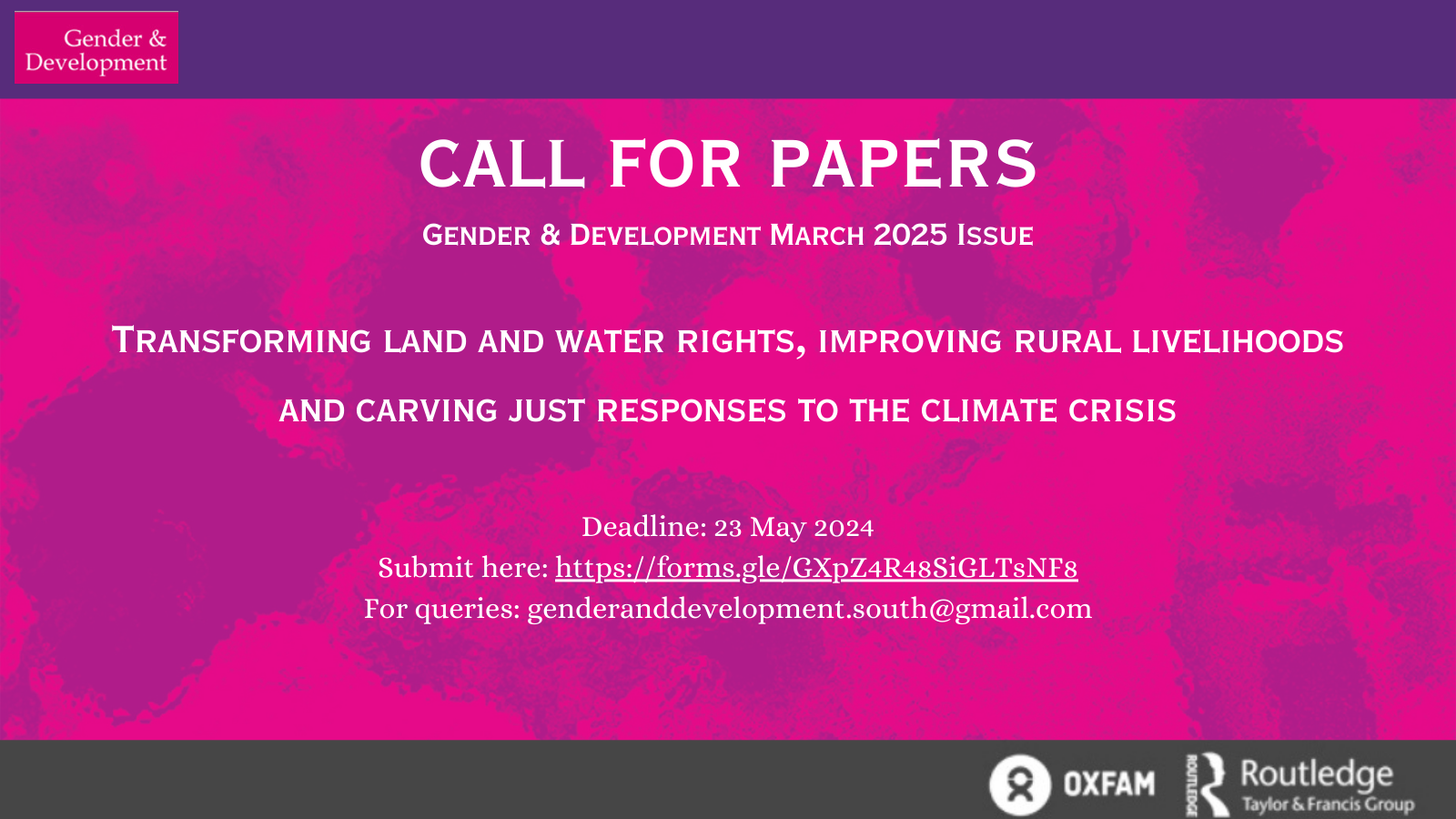
Despite women’s overwhelming labour presence in agriculture around the world, a large proportion of women farmers do not own land (FAO 2011). Women and girls do not have the same right to land and property inheritance as men and boys in many countries, or if they do have these rights, they cannot exercise them because of the overarching systemic patriarchy, or lack of security and threat of violence in regions undergoing war, conflict and/or complex humanitarian emergencies. Furthermore, women face barriers in owning livestock, access to financial services and credit, water resources, irrigation programmes and agricultural education and training, as well as basic agricultural technologies (FAO and CGIAR 2018, Huyer 2021). Deteriorating climate conditions have further exacerbated land degradation, land dispossession, water scarcity, food insecurity, and livelihood insecurity, all of which affect women living in rural areas, particularly the landless and small farm holders. Further, definitional barriers (often related to land ownership and customs) result in women farmers being invisibilised as in the context of India (Agarwal 1995, Bedi 2018). All these factors result in the lack of recognition of women’s contributions to agriculture and the rural economy and diminishing of their rights and agency. Secure community land rights is therefore a crucial yet untapped mitigation strategy for the climate crisis.
Women have been advocating and spearheading movements for climate justice, local and sustainable solutions and gender-equitable land rights for decades. Studies have indicated that women’s collectives enhance agricultural productivity, improve sustainable rural livelihoods and tackle agrarian stress better through strategies such as pooling land, labour capital, skills and collective water governance. Participation in collectives also strengthens the position of small land holders in labour markets. Despite this, there is inadequate representation and participation by rural, indigenous and Afrodescendent women in national, global and regional climate and agricultural policy discourse.
Centring the interests of rural, indigenous and Afrodescendent women, recognising their knowledge and contribution, and acknowledging the political and ecological importance of their needs and demands is the only way to move closer to achieving sustainable development goals and just economic future(s). This special issue invites rural practitioners, women environmental defenders, climate justice advocates, community and grassroots leaders, civil society organisations and academics to make contributions that deploy decolonial and feminist approaches to address the land, water, and climate crisis through innovative and ground-up community mobilisation narratives.
This special issue will be guest edited by Dina Najjar, Naomi Shadrack and Sara Ahmed
Read the detailed Call for Contributions here: Transforming land and water rights, improving rural livelihoods and carving just responses to the climate crisis
Please send your abstract of no more than 250 words with details about your research and
preliminary findings or a small multi-modal proposal (a two-minute video clip abstract or 250 word
abstract with images) using the google form link https://forms.gle/GXpZ4R48SiGLTsNF8 by 23 May 2024. Please include your name, contact details as well as organisational affiliation, if relevant. We will contact you by July 2025 if we would like you to develop your abstract into a full article/essay/photo essay/illustrations.
Please send any queries to genderanddevelopment.south@gmail.com
Note about Gender and Development:
Gender & Development, co-published by Oxfam and Routledge/Taylor & Francis, has been a steadfast source of essential readings in the field of development for the past 25 years. Since its founding in 1993, the journal has critically explored a range of cross-cutting issues in the areas of gender and development. It is a trailblazer in establishing inclusive and decolonialist approaches to knowledge creation and management in the wider international humanitarian and development sectors. From 1st January 2022, a consortium of Oxfam affiliates in the global South will be hosting Gender & Development. Together, Oxfams Brazil, Colombia, India, KEDV (Turkey), Mexico and South Africa will take over from Oxfam Great Britain, which has provided the editorial home for the journal since its founding more than 25 years ago.
